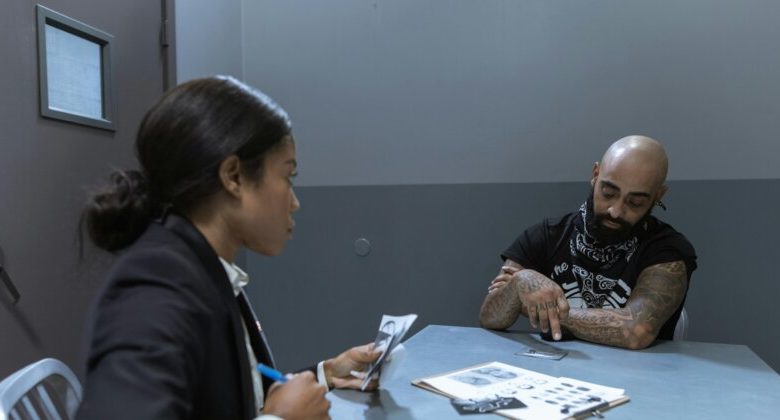The Importance of Cultural Awareness in Criminal Justice Professions

Cultural awareness plays a vital role in criminal justice professions, influencing the way professionals interact with diverse communities. From law enforcement officers to court officials, an understanding of cultural nuances helps ensure fair treatment and fosters trust. Ignoring cultural factors can lead to miscommunication, bias, and injustice. This article explores the reasons cultural awareness is essential, focusing on its impact on justice, professionalism, and societal harmony. By developing these skills, criminal justice professionals can navigate complex cultural dynamics effectively and ethically.
Understanding Cultural Awareness in Criminal Justice
Cultural awareness involves recognizing and respecting the customs, traditions, and perspectives of different groups. In criminal justice, it goes beyond basic knowledge of cultural norms; it requires empathy and adaptability. Professionals must approach situations without bias, ensuring that actions align with justice and equality. This skill is especially critical in a multicultural society where individuals from various backgrounds interact with the criminal justice system daily. When professionals value cultural diversity, they build stronger connections with communities, leading to improved public safety and cooperation.
The Role of Education in Promoting Cultural Awareness
Education is a cornerstone of fostering cultural awareness among criminal justice professionals. Training programs emphasize the importance of understanding cultural differences, helping students develop skills to handle complex scenarios. Many professionals enhance their knowledge through criminology degrees online, which often include courses on cultural competency and ethics. These programs allow learners to explore real-world challenges while equipping them with tools to address diverse populations effectively. By prioritizing education, the criminal justice system can ensure that professionals approach their work with sensitivity and inclusivity.
Enhancing Communication Skills Through Cultural Awareness
Effective communication is essential in criminal justice, and cultural awareness enhances this ability. Miscommunication often arises when professionals fail to consider cultural differences in language, body language, or social norms. A culturally aware officer, for example, can navigate a situation involving a non-native speaker more effectively by recognizing and addressing potential language barriers. Clear communication fosters trust and cooperation, reducing the risk of escalation. Criminal justice professionals who develop these skills create a foundation for mutual understanding, ultimately leading to more positive outcomes.
Reducing Bias and Stereotyping in Decision-Making
Cultural awareness helps professionals identify and mitigate bias, ensuring fair treatment for all individuals. Implicit biases often influence decisions, whether during arrests, investigations, or sentencing. A lack of cultural understanding can perpetuate stereotypes, resulting in unequal treatment. By becoming aware of their own biases and actively working to overcome them, professionals can make impartial decisions. This not only upholds justice but also reinforces public trust in the system. Addressing biases is an ongoing process, but its impact on fairness and equality cannot be overstated.
Building Trust Between Communities and the Criminal Justice System
Trust forms the backbone of an effective criminal justice system, and cultural awareness plays a pivotal role in building this trust. Communities are more likely to cooperate with law enforcement and other professionals when they feel understood and respected. Cultural insensitivity, on the other hand, can erode trust and foster resentment. By demonstrating respect for cultural diversity, professionals show their commitment to serving all individuals fairly. This fosters a collaborative environment where communities and the criminal justice system work together to address challenges and improve safety.
Fostering Ethical Practices Through Cultural Awareness
Cultural awareness directly impacts ethical practices in the criminal justice field. Ethical behavior requires treating all individuals with fairness and dignity, regardless of their cultural background. Professionals often face situations where cultural misunderstandings could lead to unethical decisions. For instance, failing to understand a community’s norms during an investigation may unintentionally alienate individuals, undermining justice. Awareness helps professionals approach their work with integrity, ensuring that policies and actions reflect moral principles. By incorporating cultural understanding into ethical frameworks, the criminal justice system becomes more just and equitable, fostering credibility and respect.
Improving Conflict Resolution in Multicultural Contexts
Conflict resolution often becomes more complex when cultural differences come into play. Professionals need to understand how cultural norms influence behavior and communication to de-escalate conflicts effectively. For instance, in some cultures, avoiding eye contact shows respect, while in others, it might be perceived as evasiveness. Without cultural awareness, these differences could be misinterpreted, escalating a situation unnecessarily. Training in cultural sensitivity equips professionals with the tools to address conflicts in ways that respect all parties involved. This not only reduces tension but also reinforces the justice system’s role as a fair and impartial entity. Cultural awareness is an indispensable aspect of modern criminal justice professions. It enhances communication, reduces bias, and builds trust, ensuring that justice is served equitably. As the world becomes more interconnected, the importance of understanding cultural differences only grows. Through education, training, and a commitment to ethical practices, professionals can adapt to these changes and serve all communities with respect and integrity. By prioritizing cultural awareness, the criminal justice system can foster fairness, inclusivity, and collaboration, ultimately contributing to a safer and more harmonious society.




